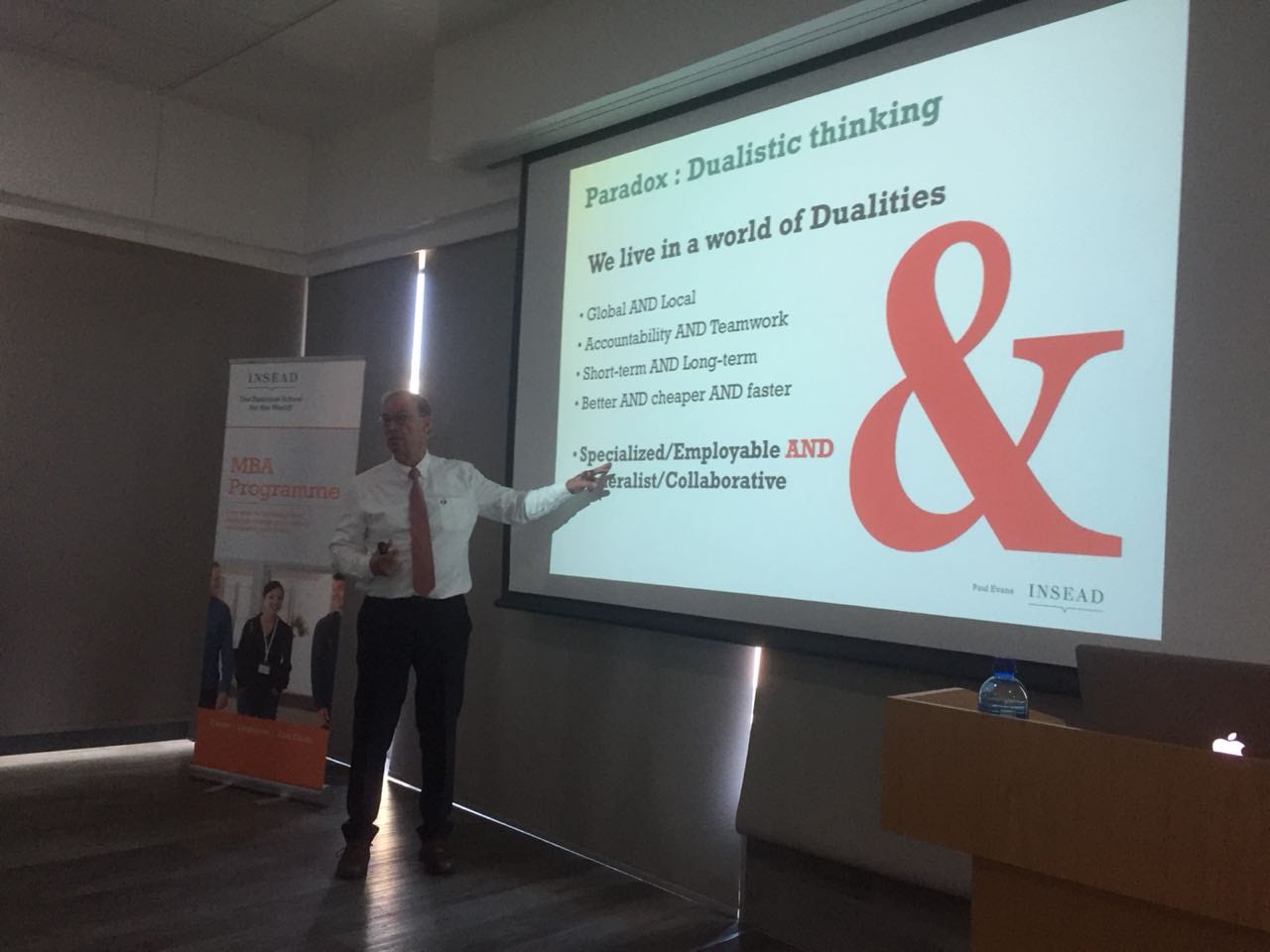
Professor Paul Evans sharing his insights into the new world of dualities we now live in with the audience
INSEAD alumni, company leaders of French Corporates in South Africa and Volkswagen SA employees, had a stimulating, early morning start to their day last week attending INSEAD’s Professor Paul Evans’ seminar – Leadership in South Africa and its Talent Competitiveness Challenges. This event was hosted by the IAASA and Volkswagen at the VW offices in Sandton. Prof. Evans, recognised as one of the most influential global though leaders in his field, was masterful, and engaged attendees’ despite the early start.
Due to time constraints on the day, not all the content was covered however the link below contains the entire slide deck as well as Prof. Evans’ Letter to the President on Vocational Education Reforms. Prof. Evans thoroughly enjoyed the discussions on the day and has sent through this personal note:
“Thanks for coming to the INSEAD seminar at VW Sandton on Wednesday. I enjoyed the questions and comments, especially after we had broken the ice by coffee break time.
Along with a copy of the slides, as promised, is the Letter to the President on reform in Vocational Education, coming from a year of discussions and work by the HR Think Tank that was set up by Knowledge Resources and Stellenbosch’s Institute for Future Studies. There are contact details re this Think Tank if anyone is interested in more info or getting involved. PAUL EVANS”
Link to slides and letter: https://goo.gl/WouxVa

